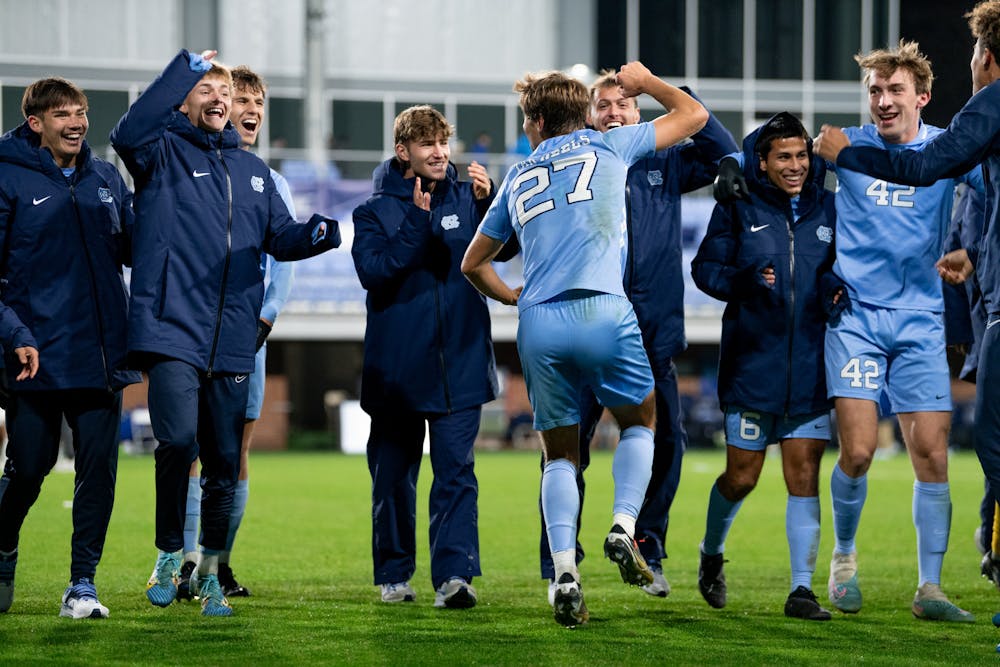Waiting to take his penalty kick, graduate forward Quenzi Huerman knew he had to change his approach in order to convert. The Frenchman had trained with Hofstra’s goalkeeper, Wessel Speel, during a tryout this summer. Huerman knew Speel was prepared for his typical approach.
So instead of blasting it home per usual, UNC’s leading goalscorer finished his penalty with a cheeky Panenka, a chip down the center of the goal.
“Mind games,” Huerman said.
In UNC's NCAA tournament third-round matchup against Hofstra on Sunday, North Carolina won, 2-2 (5-3), in a penalty shootout. In doing so, the Tar Heels rewrote a nightmare they endured just two weeks before, losing the ACC Championship to Clemson in penalty kicks. Following the loss, UNC made key changes in their penalty kick strategy on the offensive and defensive end, swapping out both goalkeepers and penalty kick takers.
In the ACC Championship, it was predetermined that alternate goalie Quinn Closson — instead of starting keeper Andrew Cordes — would be the goalkeeper in penalty kicks. This decision was made because, according to head coach Carlos Somoano, Closson is exceptionally good at saving penalties.
However, Closson was unable to get a glove on any of the five attempts the Tigers had. To avoid déjà vu Sunday night, Somoano and his staff decided to keep Cordes in the game.
“The difference is he's is playing and he is in games,” Somoano said. “So it’s a little bit easier to kind of get yourself into that competitive mode when you are doing that.”
The decision paid off. On Hofstra’s second penalty kick, Cordes dove to his right and beat the ball to its spot well before it arrived.
“We’ve trained penalties in this past week, since Clemson, a lot harder and a lot more intense,” Cordes said. “Which I think has helped all of us, the takers and the keepers, to give us the extra edge to help save one.”




